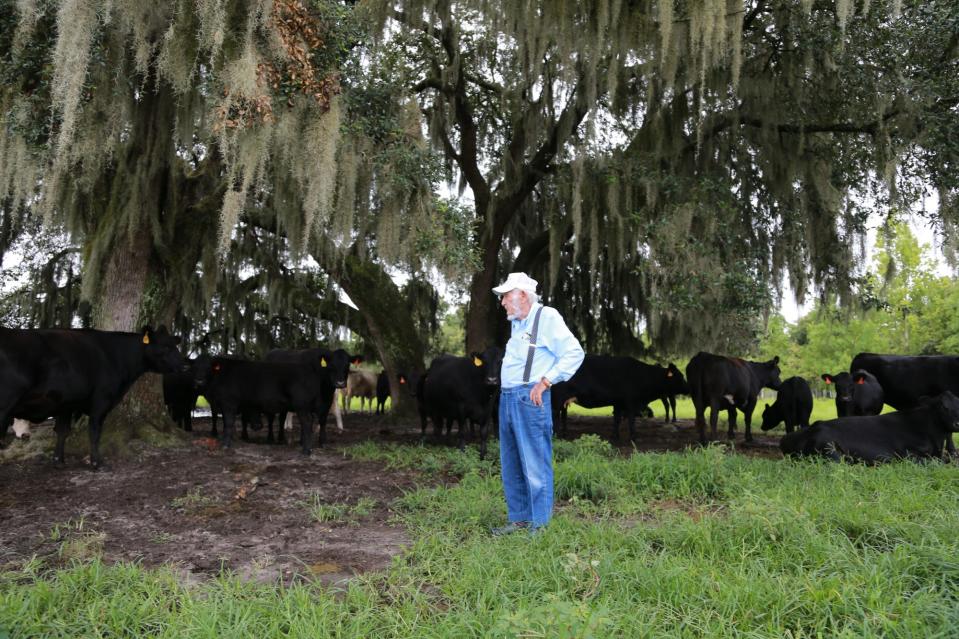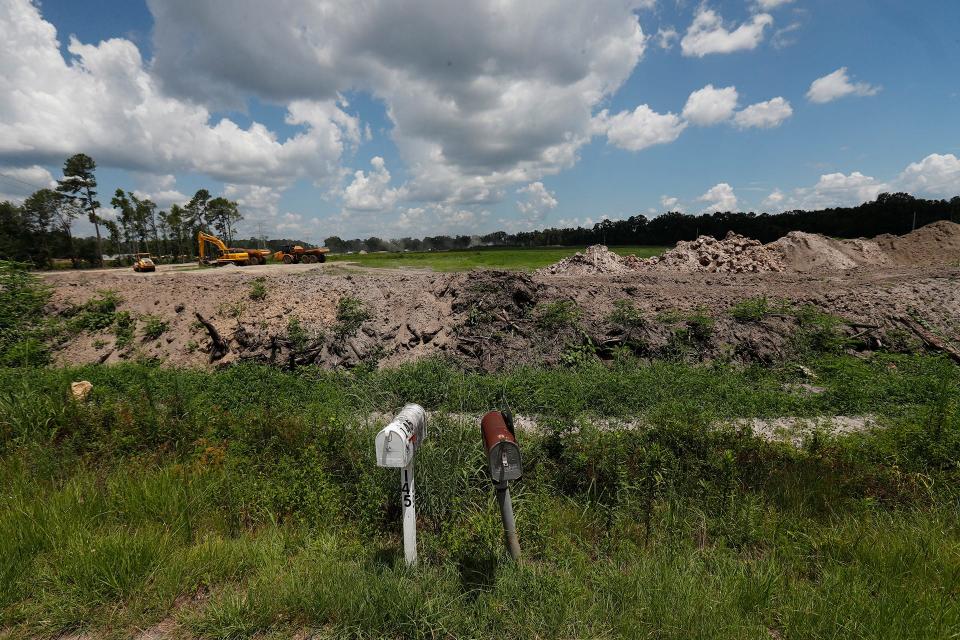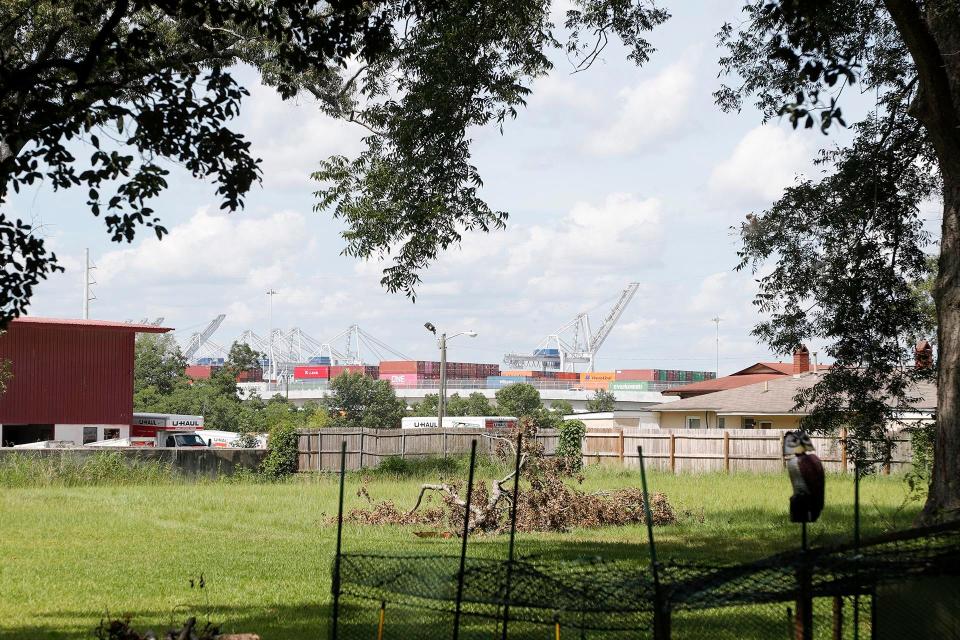Industrial moratoriums in Chatham County expire soon. What have these cities accomplished?
Three Chatham County municipalities implemented a moratorium on industrial rezoning or industrial development applications in 2022. All three freezes stand to expire in the coming months if not renewed by their local governments – Garden City, Bloomingdale and Port Wentworth.
The temporary pause on industrial builds such as warehouses, manufacturing and logistics centers came just as the region’s industrial economy experienced a golden hour. News of the creation of the Hyundai Metaplant in Bryan County and the Georgia Ports Authority’s dizzying growth predictions for the next decades portend major boosts to Savannah’s already-whirring supply chain and logistics sector.
And, while this future promises much in the way of economic development, municipal leaders also saw that rapid industrialization could be a reckoning on the city’s infrastructure and residential life.
More:Georgia Port Authority's growth both blessing and challenge for Savannah, surrounding communities
More:First City Progress: What drives growth at the ports? Population, consumerism, investments
Where and why did the moratoriums start?
In January 2022, Bloomingdale was the first to institute a moratorium on industrial and multi-family zoning applications to assess the city’s water and sewer capacity. Bloomingdale is one of the rare rural pockets in Chatham - the city is home to one of the last farms in Chatham. Bloomingdale's moratorium, which was extended, could be lifted with a council vote this month, said City Administrator Charles Akridge.
Garden City, a next-door neighbor to the Port of Savannah, followed suit in May, citing a need to assess the city’s zoning ordinance and identify ways to increase residential construction. Their moratorium differed slightly by putting a pause on industrial land rezonings rather than development applications. The moratorium is set to expire at January's end.
Port Wentworth implemented its own industrial rezoning moratorium in June, prompting an overhaul of the city’s zoning ordinance, which a consultant called “difficult to interpret and inconsistent," and an assessment of the city’s comprehensive plan, which was found to be similarly lacking.
The audits of the city’s key roadmaps for growth and development are part of a larger plan in righting the missteps of the last decade and a half. Since the early 2000s, Port Wentworth has experienced rapid growth that many residents and municipal officials said was imbalanced and failed to serve the needs of the people. Port Wentworth’s moratorium was extended until April this year to accommodate their zoning ordinance rewrite.
More:All work and no play? Port Wentworth residents lack access to recreation, other amenities
Cities in neighboring Bryan and Effingham counties are also responding to the rapid growth in the region by instituting moratoriums of their own.
The trend is mirrored all over the U.S. in communities facing increased pressure from industrial development as the global e-commerce market expands. Cities in California’s Inland Empire – home to tens of millions of square feet of warehouse space serving the largest port in the nation – issued freezes on warehouse development, citing environmental and health concerns.
Here in Chatham County, worsening traffic, a dearth of affordable housing and lack of commercial resources are playing into some municipalities’ decisions to pause and reassess. Here’s a look at the three cities, what they’ve accomplished so far and what lies ahead.
Bloomingdale to push back on industry, court housing

Bloomingdale, known for its rural feel and the last family-owned farm in the county, Ottawa Farms, saw more and more land being rezoned to industrial use over the years. Pine trees were razed for major projects totaling more than 12 million square feet of warehouse space. Residents worried what would become of their once-quaint and tree-filled town.
Growth is coming, but more of that needs to be residential development, said the mayor and city administrator. But in order to do so, the city needed to assess its development patterns and ensure that there was enough water and sewer capacity to accommodate future homes.
More:Bloomingdale council: City 'not open for business' for warehouse, apartment development
More:Bloomingdale has a new growth plan. What does this mean for future development in the city?
A growth plan drafted by the Metropolitan Planning Commission during the moratorium revealed that, in four years, the city’s industrial-zoned areas jumped 14%, now making up a quarter of the land in the city. Bloomingdale was at a tipping point, the report stated, and recommended that no future industrial rezonings be permitted, unless part of a larger, mixed-use zoning proposal.
The city was able to purchase another 250,000 gallons of sewer capacity, enough for at least the next 50 years, said Akridge.
In the past year, the city has tried to court housing developers and realtors to Bloomingdale, a task that’s proving more difficult than expected, said Akridge. Meanwhile, industrial development applications are expected to flood in once the moratorium is lifted, but the city is “going to lean heavily" on the MPC report.
“It’s coming from all sides, so we’re going to have to be really judicious in what comes before council,” said Akridge, “there needs to be some diversity in the land use.”
Port Wentworth finishes up zoning overhaul
In the half year since Port Wentworth has instituted its rezoning moratorium, the city has completed two major audits of its zoning ordinance and comprehensive plan. An audit of the city’s zoning ordinance, which sets standards for different types of development, is undergoing a major overhaul. The rewrite is expected to be completed by April, when the industrial rezoning moratorium is set to expire.
“We want to have those new guidelines in place before we lift the moratorium,” said City Manager Steve Davis.

More:Port Wentworth city planning woes: must redo ordinance, revisit comprehensive plan
More:Port Wentworth issues warehouse moratorium for next six months
An audit of the comprehensive plan – the city’s guide to growth and urban planning – also suggested a major reworking.
For more than a decade, uncontrolled residential development and industrial growth has created an imbalanced city. In the early 2000s, large residential subdivisions were built on the north side to boost the waning population. Industrial growth continued, at times right next to residential and agricultural communities. Not enough was being created in terms of recreation, medical services and food options to sustain families flocking to the area.
More:Auditors: Port Wentworth’s comprehensive plan is 'vague' and 'contains no real vision'
The city’s comprehensive plan doesn’t seem to reflect that history, according to Horizon Community Planning’s audit, nor does it provide a remedy. Davis said the council will likely consider the best path forward for the comprehensive plan after the zoning ordinance rewrite is done.
“It’s going to be more organized, more understandable,” said Davis, “...and the process is going to be more standardized now if someone applies for a rezoning.”
Other council actions during the moratorium included moving forward with the long-awaited sports and recreation center, which is expected to break ground in the coming months. A computer lab and a north-side police substation have been approved by council as well.
“It's hard to turn a ship on a dime,” said Davis, “but I think we've accomplished a lot and came a long way in the last 12 months.”
Garden City continues housing push
As more people are poised to move to the Savannah area, Garden City is positioning itself as a city open to more residential development. Over the course of the moratorium, the city has reworked its zoning ordinance to streamline residential developments and attracted an apartment complex to be built on city-owned land.
According to City Manager Scott Robider, residential development is what Garden City needs.
“As we see the increase of large warehouses and other industrial sites related to logistics, we’re becoming increasingly concerned about trying to balance the industrial versus residential,” said Robider in a previous Savannah Morning News article.

More:Addressing Savannah's housing shortage: A new townhome complex is coming to Garden City
More:Affordable housing is hard to find in and near Savannah. Garden City leaders see opportunity.
Garden City is ground zero for port traffic coming from the Garden City Terminal – the Georgia Ports Authority’s busiest and largest facility. Railroad tracks snake from the ports into the community, and trains often bring traffic to a standstill.
Robider acknowledges more affordable housing needs to be built as well, especially as low-income Savannah residents are pushed out of the city center. However, that can prove tricky as affordable housing often requires that public transportation be available nearby, another initiative the city is working on.
More:'A pinnacle moment.' Garden City expands Chatham Area Transit, adding six new bus stops.
More plans to build housing are in the works. Available tracts on Ogeechee Road, a large tract behind city hall and parcels off of Georgia 21 are ripe for development.
Although the city council does not plan to renew the industrial rezoning moratorium at the end of the month, they’ve made it clear that the focus is on growing the residential population.
Nancy Guan is the general assignment reporter covering Chatham County municipalities. Reach her at nguan@gannett.com or on Twitter @nancyguann.
This article originally appeared on Savannah Morning News: Industrial moratoriums to expire in West Chatham cities. What's next?

